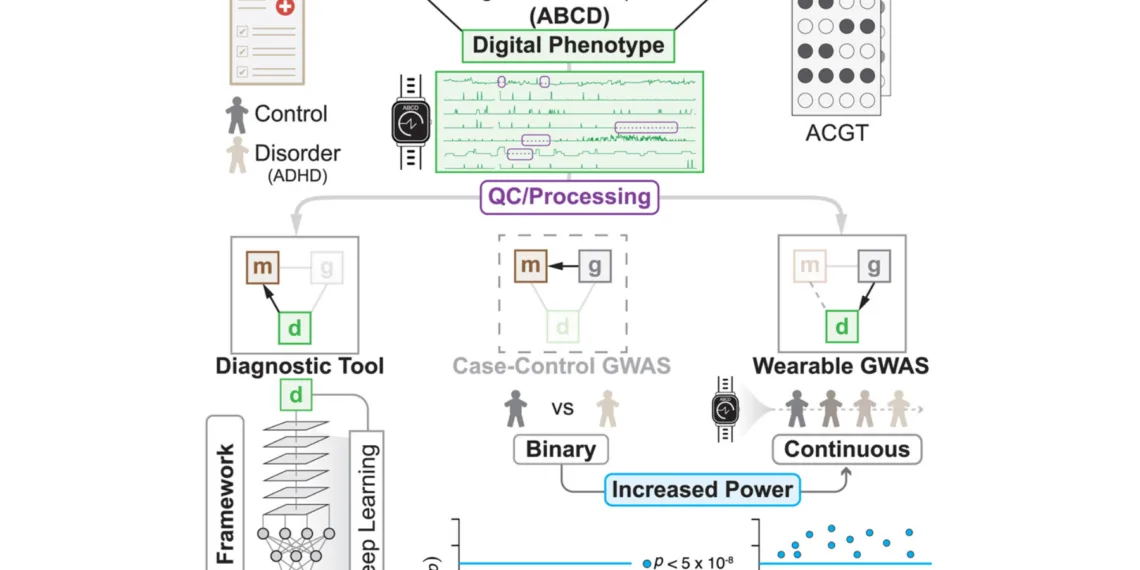Select Language:
In recent years, the medical research community has increasingly focused on wearables, spurred by their widespread adoption. This shift has resulted in impressive advancements in the effectiveness and capabilities of these devices.
The latest breakthrough comes from the team at the University of Barcelona. They published a study in the Cell journal, outlining how smartwatches can effectively identify psychological disorders through biomarkers.
By utilizing continuous monitoring data from smartwatches, the researchers identified 16 critical genetic loci and 37 genes associated with psychiatric disorders.
“Our methodology has enabled, for the first time, the simultaneous analysis of the relationship between genetics and the various metrics provided by smartwatches,” explained Diego Garrido Martín, one of the study's co-authors.
The team developed an AI model that analyzed physiological data collected by smartwatch sensors. The study included over five thousand participants, aged 9 to 14, who wore Fitbit devices for data collection.
Experts examined metrics such as heart rate, calorie expenditure, step counts, exercise intensity, and sleep patterns. When this data was processed through an AI model, it allowed the researchers to create a digital phenotype—a collection of observable traits captured in a digital format.
Linking Smartwatch Data to Genetics
For the first time, these digital phenotypes offer an innovative approach to predicting or diagnosing psychiatric issues, which typically require in-person evaluation by healthcare professionals. More importantly, this wearable-focused methodology integrates the genetic aspects of these conditions.
“One significant benefit is that we can utilize the digital phenotype almost like a diagnostic instrument or biomarker, allowing us to connect disease to genetics,” said Jason Liu, another co-author of the study.
The primary challenge lies in developing a robust system capable of processing the data generated by smartwatches to draw accurate conclusions. The research team asserts that the sensor data contains enough details about physical and behavioral patterns to correlate them with psychiatric disorders reliably.
“These measurements quantify a person’s physiological responses and real-time adaptations to environmental changes, providing essential insights into their behavior,” the research paper states.
For instance, sleep analysis emerged as a critical factor for diagnosing anxiety, while heart rate measurements were particularly useful for predicting developmental issues such as Attention-Deficit/Hyperactivity Disorder (ADHD).
A New Era for Psychiatry
This research signifies the first time that digital phenotype data, collected through real-time smartwatch monitoring, has been associated with psychiatric illnesses and an individual’s genetic profile.
This connection represents a fundamental shift in how psychiatric conditions are diagnosed and treated, moving beyond traditional behavioral assessments into a realm where biomarkers and physiological data assume a critical role.
“Their findings may inspire a transition from conventional clinical diagnoses to more quantitative behavioral measurements that could help in identifying genetic biomarkers,” the research team noted.
At the center of this transformation are smartwatches. Notably, the biomarkers derived from the Fitbit devices used in the study can also be obtained from many other mass-market wearables, including fitness bands and smart rings.
“Our precise predictions indicate that these quantitative features could be beneficial for exploring other aspects of psychiatric disorders, including their underlying genetic frameworks,” the study concluded.
The researchers wrapped up by asserting that the biomarker data captured through smartwatches could enhance the classification of patients across various diagnostic levels, ultimately improving the quality of medical treatment.







